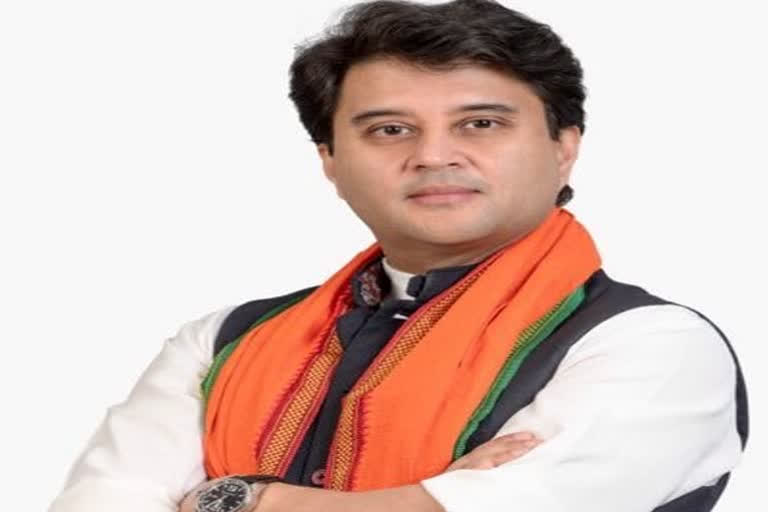New Delhi: Civil Aviation Minister Jyotiraditya Scindia on Thursday called the Drone Rules, 2021 as historic and said the new rules will eliminate all unnecessary operational and entry barriers and set India on the path of becoming a global drone hub by 2030.
"The new liberalised Drone Rules, 2021 are based on three fundamentals- trust, self-certification and non-intrusive monitoring. Unnecessary regulatory processes and approvals for drone operation have been eliminated. This will give the much-needed fillip to the drone ecosystem and set India on the path of becoming a global drone hub by 2030," said Civil Aviation Minister Jyotiraditya Scindia while addressing a press conference on Thursday.
According to the Civil Aviation Minister, within thirty days, an air space map for unnamed aircraft system operations segregating the entire airspace of India into red zone, yellow zone and green zone, with a horizontal resolution equal to or final than 10 meters shall be published on the digital sky platform.
"If there is an urgent need to temporarily prohibit unmanned aircraft system flights in any specified area, the concerned State government or the Union Territory Administration or a law enforcement agency may declare a temporary red zone over such specified area, for a period not exceeding 96 hours at a time, by notifying it through the digital sky platform and highlighting it on the airspace map," he added.
Also read: Centre notifies new Drone Rules 2021, no security clearance needed
For mapping the three zones, the state governments will have to appoint a nodal police officer for drones. As per the rules, the temporary red zone shall be declared by an officer, not below the rank of Superintendent of Police or his equivalent and such officer shall endeavour to keep the size of the temporary red zone reasonable and not excessive.
Jyotiraditya Scindia further said that the drone rules create a balance between India's development and security. "This shows PM Modi's far-sightedness and capability. Our drone rules are based on trust, self-certification and non-inclusive monitoring," he added.
Speaking on the steps that are being taken by the government for anti-drone technology, Scindia said that the Ministry of Home Affairs, Ministry of Defence and Ministry of Civil Aviation are working together on the matter. "Government shall notify safety features to be installed on a drone, these may include 'No Permission - No Takeoff' system; real-time flight tracking beacon and geofencing capability, ahead of time and a period of six months shall be given for compliance," he added.
Also read: India's first Drone Forensic Lab & Research Centre comes up in Kerala
The Civil Aviation Minister said that Rs 62,000 crore annual revenue, 5,000 jobs will be generated from the sector and the employees will get a minimum salary of Rs 30,000 per month.
He also spoke about the future of drones and said that air taxis are being researched and invented globally and many startups are coming up. "That time is not far when taxis, like the ones of Uber that you see on roads, you will see in the air under the drone policy," Scindia said.



